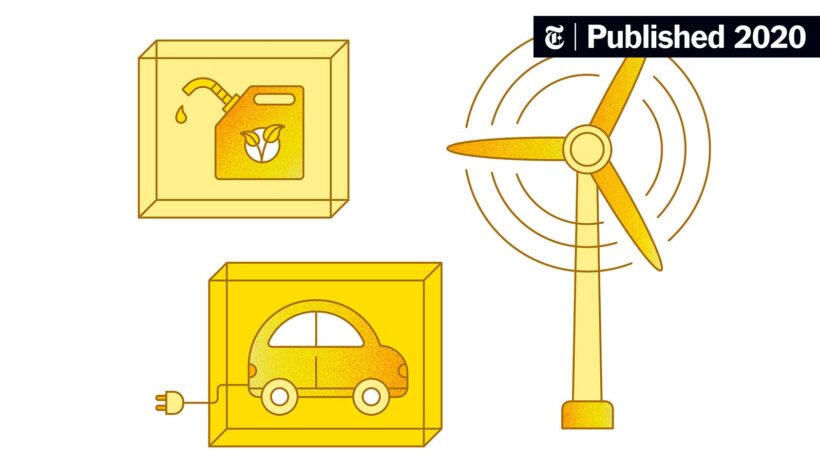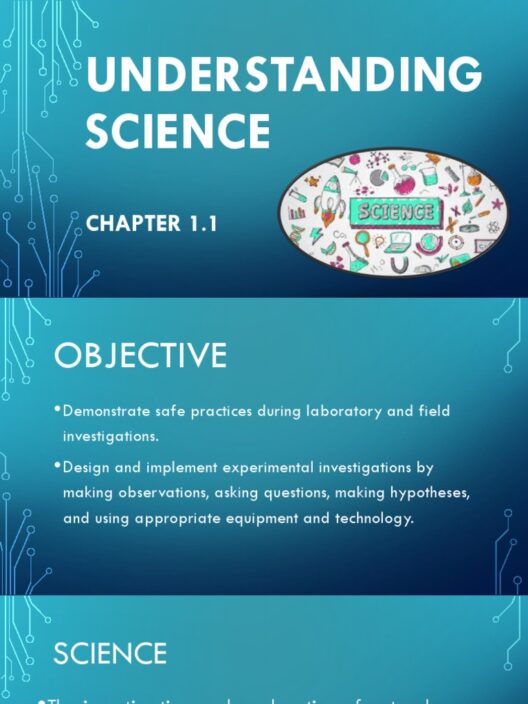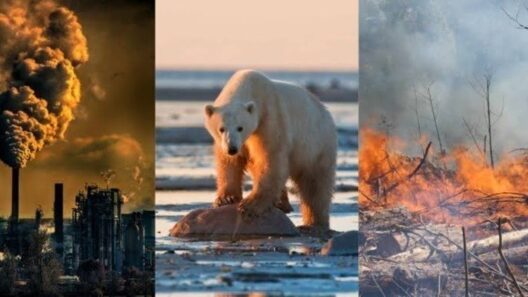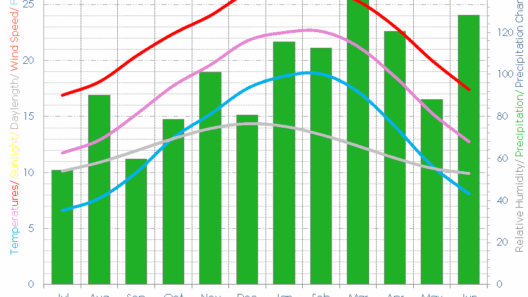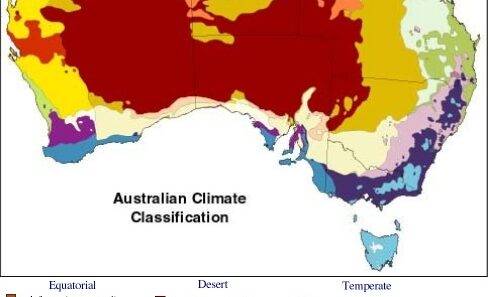In the grand tapestry of life on Earth, a curious question emerges: what if we could entirely disentangle our existence from fossil fuels? This inquiry propels us into the crux of an existential challenge that humanity faces today—a challenge that manifests not just in the rise of temperatures, but in the very air we breathe. Fossil fuels—the backbone of modern industrial society—are the culprits driving contemporary climate change. From coal to oil to natural gas, these hydrocarbon-based resources are deeply entrenched in our daily lives and the functioning of our economy.
To grasp the gravity of the situation, we must first understand how fossil fuels contribute to climate change. When burned, these fuels release carbon dioxide (CO2), a greenhouse gas that traps heat in the atmosphere. According to scientific consensus, the upsurge in CO2 levels correlates directly with the rising global temperature. But it gets even more intricate; fossil fuel combustion results in the discharge of other pernicious pollutants, such as methane and nitrous oxide, each of which wields a more aggressive heat-trapping capability than CO2.
Now, envision our planet as a giant greenhouse, with each type of fossil fuel acting as a different layer of glass. As we diligently burn these fuels for energy, we’re effectively adding more layers—creating an increasingly stifling environment. This phenomenon accelerates the melting of polar ice caps, the alteration of ocean currents, and the intensification of extreme weather events. It poses an alarming challenge to biodiversity and agriculture alike, threatening ecosystems and food security in unprecedented ways.
Astonishingly, fossil fuel use is not limited to transportation and electricity generation; it permeates myriad facets of everyday life. From the plastic containers we use to store our food to the synthetic fabrics in our clothing, hydrocarbons are inextricably linked to our lifestyle. This expansive reliance creates a formidable barrier to breaking free from fossil fuels, prompting a vital exploration of alternative energy sources. What if, for instance, we began to view renewable energy not just as a substitute but as a catalyst for innovation and economic revitalization? Harnessing solar power, wind energy, and hydroelectric resources could not only curb greenhouse gas emissions but also pave the road for sustainable job creation.
Transitioning to renewable energy is a multifaceted challenge, requiring cooperation across sectors, nations, and communities. Governments around the globe must implement policies that incentivize clean energy production and penalize excessive carbon emissions. At a grassroots level, individuals can advocate for local sustainability initiatives—encouraging communities to adopt energy efficiency and conservation practices. This gives rise to a creative conundrum: if we collectively embraced more sustainable living choices, what ripple effect might that have on radical climate action?
Consider urban planning as another venue for fostering sustainability. Cities are the heartbeat of our modern world, and their design can either exacerbate or alleviate environmental impact. Smart growth initiatives advocate for denser, walkable urban spaces that prioritize public transportation, cycling, and pedestrian access. If cities around the world adopted these principles, we could significantly reduce the demand for fossil fuels, thereby lessening our carbon footprint.
The efficacy of environmental activism cannot be overstated. Engaging the public in discussions about climate actions and encouraging community initiatives typically results in enhanced awareness and traction for sustainable policies. Take, for example, movements aimed at divesting from fossil fuel investment portfolios. Such grassroots activism fosters a transformative dialogue, posing an intriguing challenge: how can individuals leverage their consumer power to hold corporations accountable for their environmental impact?
In confronting the fossil fuel behemoth, education emerges as a powerful tool. Schools, universities, and community organizations can integrate climate science into curricula, fostering a generation that not only understands the stakes but is passionate about enacting change. Imagining a world where eco-conscious citizens lead the charge against climate change, we are reminded that awareness without action yields little. Thus, we pose a salient question: can we galvanize this youthful energy to advocate for sweeping policies that will shatter our reliance on fossil fuels?
Delving deeper, we recognize the intersectionality of climate change—a phenomenon that disproportionately impacts marginalized communities around the world. Low-income populations often bear the brunt of environmental degradation and are least equipped to cope with its consequences. This brings forth a vital point: how can we ensure that the narrative of climate action is inclusive, empowering those who are often overlooked? Recognizing and rectifying these inequities is crucial as we forge ahead in our battle against fossil fuel dependency.
As we venture forth in this era of reckoning, the imperative to rethink our relationship with fossil fuels cannot be overstated. While the challenges are daunting, they also present opportunities for innovation, inclusivity, and resilience. Each decision we make—be it at the level of policy, community engagement, or individual lifestyle—contributes to the broader narrative of climate action. By holding ourselves accountable and remaining vigilant in our efforts, we can collectively reshape the future. The question lingers: are we ready to break free from the clutches of fossil fuels and ignite a sustainable revolution for generations to come?
In conclusion, the urgency for change is palpable; the path is fraught with challenges, yet within those challenges lie the seeds of profound transformation. Let’s embrace the challenge, pursue sustainable alternatives, and ignite a new understanding of our responsibility toward the Earth. Together, we can dismantle the fossil fuel framework that fuels climate change and cultivate a future defined by renewable energy, equity, and resiliency.



